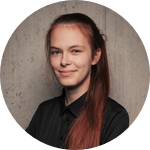About This Project
Neglected tropical diseases (NTDs) are an increasing threat to the world population due to climate change. Alas, sophisticated testing systems are not readily available in low-resource environments.
For this reason we are developing a rapid nucleic acid based detection platform for various pathogens. We aim to make it accessible to low resource areas in order to contain the spread of diseases at the site of occurrence.
Ask the Scientists
Join The DiscussionWhat is the context of this research?
The escalating threat of neglected tropical diseases (NTDs) poses a significant challenge to global health.[1] They are estimated to cause more than 2 billion infections, resulting in 200.000 deaths annually and leave millions disabled.[2] Despite this, they receive scant attention, as they primarily affect poorer regions.[3] This is bound to shift, as climate change extends the geographic reach of disease vectors, endangering both developing and industrialized nations alike.[4]
The WHO plans to contain the global spread of NTDs by 2030 through international efforts. Therefore precise data on the circulation of tropical diseases is indispensable for targeted support programs. However, currently this goal is out of reach due to insufficient detection of NTDs in endemic areas. [5]
What is the significance of this project?
Establishing a high-functioning diagnostic infrastructure is crucial for swift outbreak containment and early-stage treatment. However, the ones most vulnerable to NTDs lack access to adequate medical facilities.[1] Robust, portable diagnostic platforms can bridge this gap, but require a delicate balance of sensitivity, specificity, as well as cost-effectiveness, and user-friendliness. Multiplexing further economizes testing.[2]
While immunological Point of Care tests are valuable for initial screenings, they need further diagnosis confirmation and are time-intensive in development.[3] Nucleic acid-based tests offer higher sensitivity and can be easily adapted and multiplexed. But they remain costly and unsuitable for resource-limited regions.[2]
What are the goals of the project?
To effectively combat the consequences of climate change, a testing platform for NTDs needs to be operable in a range of environments, from well-equipped laboratories to minimal-resource settings. The workflow should require only a minimal number of working steps and no devices. At the same time, it needs to be rapidly applicable to new upcoming pathogens and multiplexable to differentiate between illnesses with similar symptoms.
CRISPR-based diagnostic platforms offer the necessary accuracy and adaptability. Until now, they lack user-friendliness in terms of test duration and device-free, multiplexed readout.[1]
Budget
Further funding of 40.000 € from the Aventis Foundation was previously acquired for the general set-up of the Lab, mainly devices. University funds and sponsorship deals (20.000 €) help to finance smaller lab devices, consumables, nucleotide synthesis & sequencing and enzymes.
The university has provided us with a laboratory that we can use indefinitely for our work.
 Project Timeline
Project Timeline
n/a
Mar 31, 2024
Complete Protein Engineering and Function tests
Jun 30, 2024
Microfluidic Function Test
Sep 30, 2024
Establishment of Kit Workflow
Dec 31, 2024
Project Completion
Meet the Team
Affiliates
Affiliates
Team Bio
The CompuGene Student Lab is a research team of 13 students at the TU Darmstadt. Our creativity and engagement allows us to dream big in our aim to tackle global issues using novel methods of synthetic biology. Combining our backgrounds in biology, chemistry, physics and electrical engineering enables us to develop innovative, interdisciplinary approaches. Despite the fact that we are early in our careers, we benefit from access to experts in our broad network and at the university.
Nadja Eisenbruch
I am pursuing a masters degree in Biomolecular Engineering at the TU Darmstadt. Through various internships and work i have developed an interest in rational and semirational protein engineering, genetic circuits and biosensors.
My role in the compugene student lab encompasses project development, planning of molecular biology experiments and lab organisation.
If you are interested in learning more about our project you can contact me here: www.linkedin.com/in/nadja-eise...
Julian Kulenkampff
I am pursuing a Master's degree in Mechatronics at the Technical University of Darmstadt and I have a particular interest in synthetic biology, analog electronics, and optics.
I work at the Compugene Student Lab on the development of a spectrometer that can be used for disease detection. We custom design the spectrometer to be user friendly, cheap, precise and robust. This includes developing custom electronics, hardware and software.
Additionally, I am responsible for 3D printing tasks in the laboratory.
You can contact me via LinkdIn: http://www.linkedin.com/in/julian-k7
Micha Becker
Currently studying Master of Science in Chemistry at TU Darmstadt (Germany) with interest in Biopharmaceutical Chemistry.
I've been involved in the CompuGene Student Lab project since it began, so I'm very much concerned with public relations and networking in scientific communities. As a biochemist, I am also involved in method development regarding preparative work, protein expression and structural considerations. Furthermore, thanks to my knowledge of chemistry, I am responsible for substance handling and organic synthesis.
www.linkedin.com/in/micha-becker
Kai Kabuth
My name is Kai Kabuth and I am currently studying for a Master's degree in Biomolecular Engineering at TU Darmstadt in Germany. I participated in the 2021 iGEM competition as part of the TU Darmstadt team and decided afterwards that I would like to give more students the opportunity to do their own research. Based on this common goal, Antonia Schetle, Melina Baur and I decided to found the CompuGene Student Lab at TU Darmstadt.
Other interests of mine are computer science and the combination of computer science and biology to open up new possibilities in the field of biology. Be it through the use of AI to get a grip on the enormous amounts of data that arise in biology, or through the use of robot-assisted laboratory automation processes.
Project Backers
- 0Backers
- 0%Funded
- $0Total Donations
- $0Average Donation



